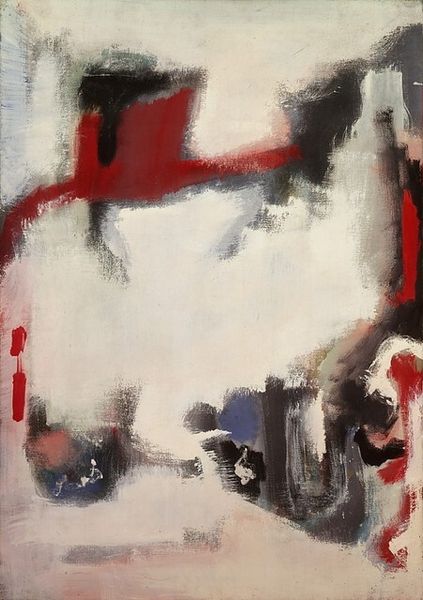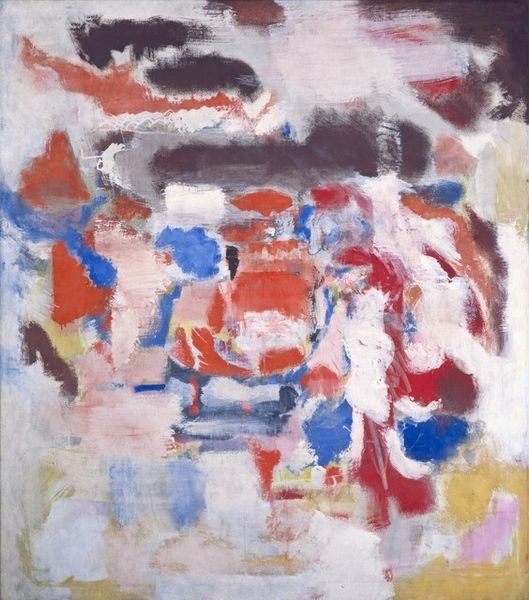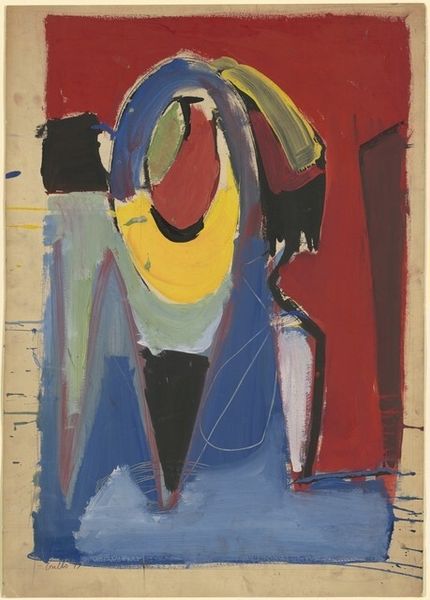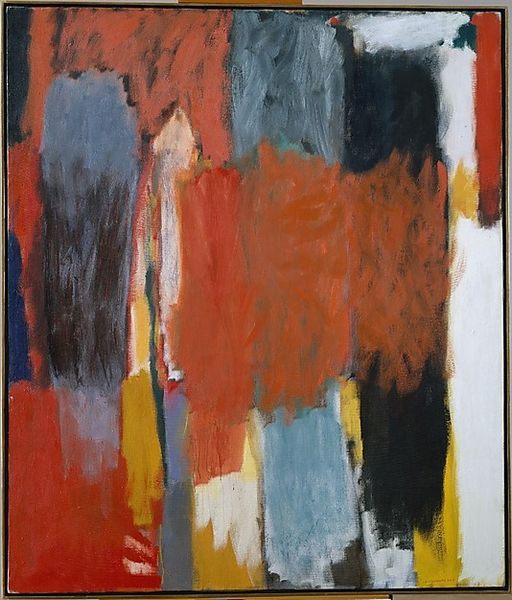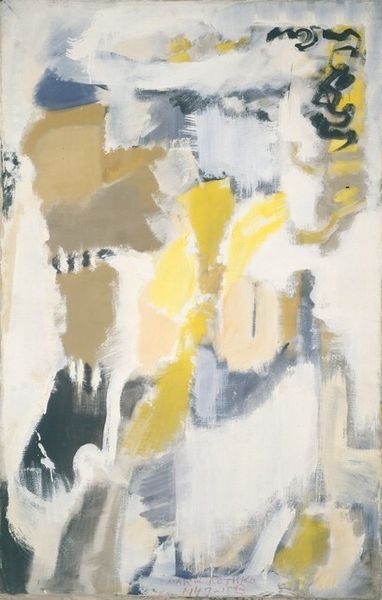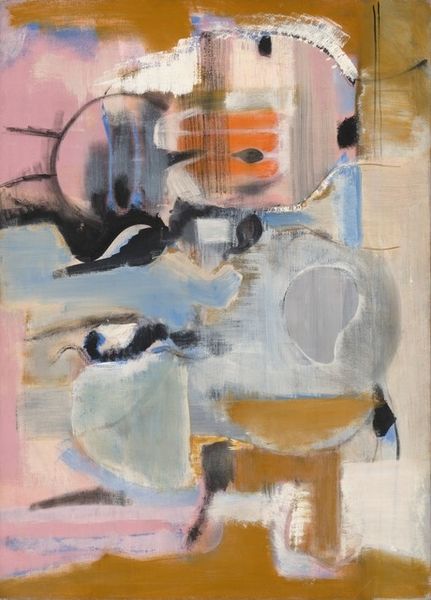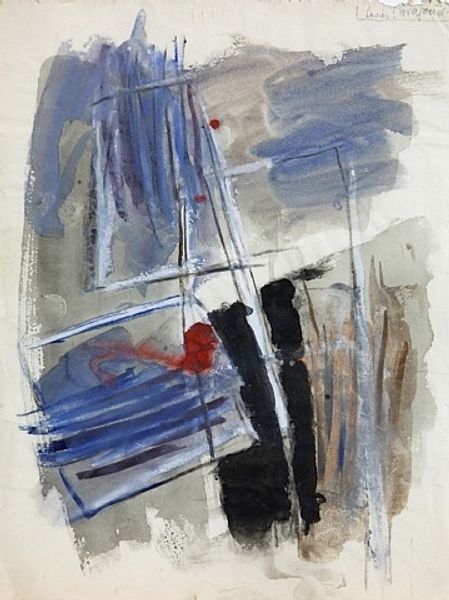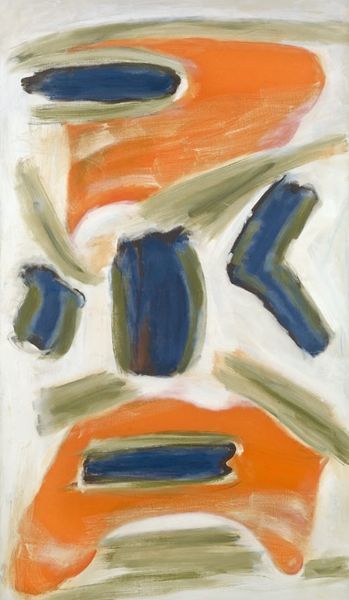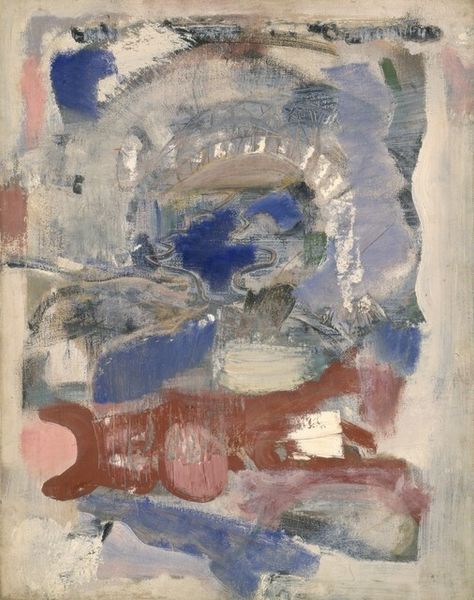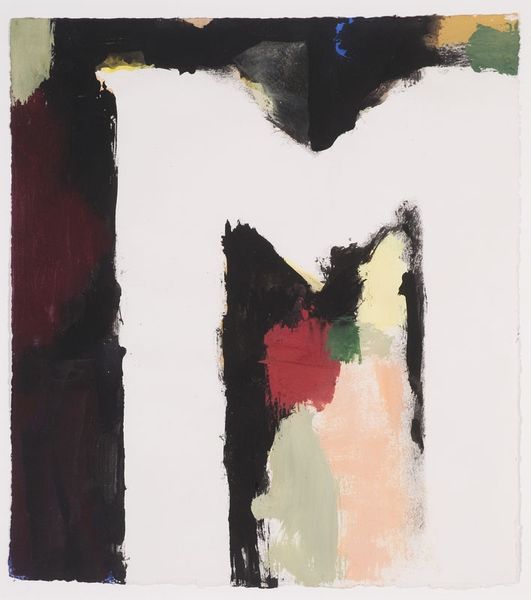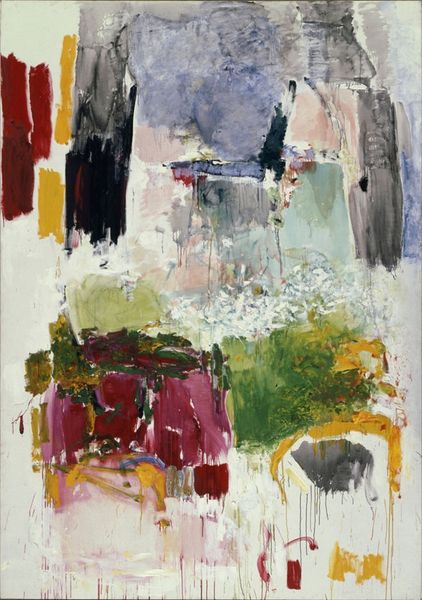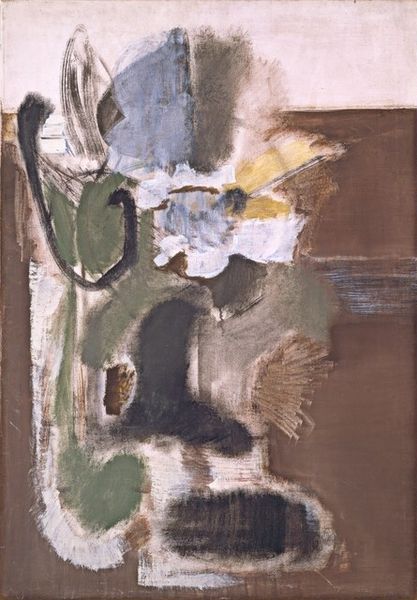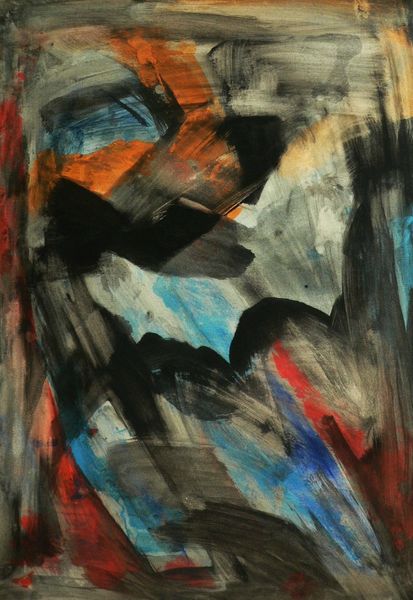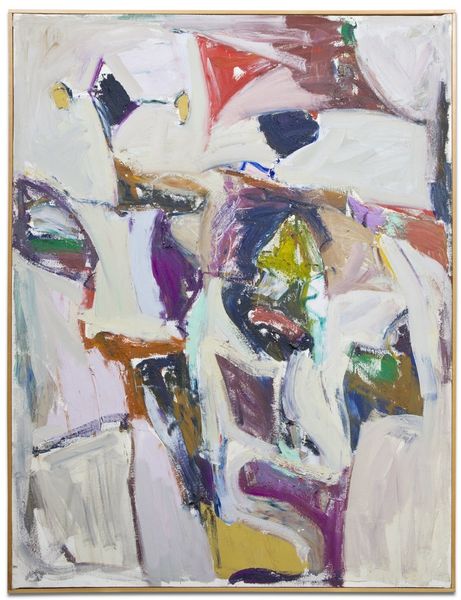
oil-paint
#
abstract-expressionism
#
abstract expressionism
#
oil-paint
#
oil painting
#
abstraction
#
modernism
Dimensions: overall: 99.9 x 69.9 cm (39 5/16 x 27 1/2 in.) framed: 103.8 x 75.3 x 5.7 cm (40 7/8 x 29 5/8 x 2 1/4 in.)
Copyright: National Gallery of Art: CC0 1.0
Curator: Mark Rothko painted this unnamed oil on canvas in 1946, during a period when he was moving away from surrealism toward the abstract expressionism that would define his later career. Editor: Right away, it feels unresolved, a work in progress. It's less about confident statements and more about…whispering questions, you know? Curator: I find the composition compelling because it embodies a tension so representative of its time. Post-war anxiety saturates modernism. The brushstrokes may appear haphazard, but consider the historical context. Editor: Yeah, okay, I hear that. It definitely reflects a search for something new amidst chaos. The red and black blotches especially evoke some violent imagery, but filtered somehow. There is some pale underwashes that seems very light in the picture, some parts seem almost child-like Curator: That filter is the critical move, as it translates a deeply felt anxiety to the picture plane, reflecting both the internal and external realities of a world struggling to find its footing in the mid-20th century. I read these embryonic forms in connection to wider discussions about social progress and trauma. Editor: Progress towards what? Maybe a more honest reckoning. I feel almost voyeuristic looking at the vulnerable rawness laid bare by the work. And how the colors just barely contain themselves, how those drizzles are so defiant against being contained. There's something powerfully melancholic here too. Curator: In that sense, abstraction is itself a kind of activism. It allows for the unspoken, the unspeakable even, to enter the public discourse in oblique yet resonant ways. The political is always and already personal and deeply entangled within the act of creation. Editor: Absolutely, and Rothko hits that sweet spot where the personal transcends itself. It stops being solely about his anxieties, his feelings and reflects this feeling of change after trauma that is both extremely beautiful, but deeply terrifying as well. Curator: Precisely. Rothko uses pure abstraction not as an escape from the world but as an entry point to explore the collective experiences. It shows the historical and social context for viewers, which is why it is extremely profound to this day. Editor: Thinking about it now, the ‘unfinished’ feeling? Maybe that’s the whole point. Because are we, as a society, ever truly “finished”? Doubtful, right? I can really find hope in this piece today as something more.
Comments
No comments
Be the first to comment and join the conversation on the ultimate creative platform.
